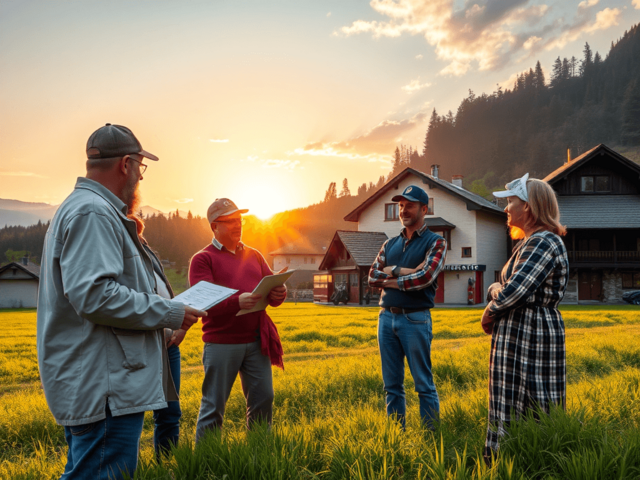Safety is something that concerns all of us, especially when it comes to fire protection 🔥. The quality and availability of firefighting water (Löschwasser) play a critical role in the effectiveness of fire services. In Austria, as in many other countries, cooperation between communities (Gemeinden) is becoming the key to ensuring a reliable water supply for these purposes. Why is this so important and how does it work in practice? Let's find out! 🤔
With climate change and urban growth, providing reliable access to water for firefighting is becoming increasingly challenging. This is where collaboration between neighboring communities comes in. By pooling resources and expertise, they can create more efficient and cost-effective firefighting water systems. 🤝
Why is community cooperation important to ensure Löschwasser? 💧
Saving resources and money 💰
Instead of each community building its own water supply system, joint projects allow for sharing of costs and resources. This is especially true for smaller communities where funding may be limited. Creating a unified infrastructure allows for optimization of costs for construction, maintenance, and modernization of networks.
Increased reliability and efficiency ⚙️
Combining efforts allows us to create a more sustainable and reliable water supply system. Distributed water sources and reserve capacities ensure uninterrupted water supply even in the event of accidents or interruptions in the operation of individual sections of the network. In addition, joint projects allow us to implement modern technologies and use advanced methods of water resource management.
Improved coordination and interaction 🤝
Cooperation between communities improves coordination and cooperation between fire services. Sharing information, training together, and developing common action plans improves preparedness to respond to emergencies. This is especially important in border areas where fires can spread quickly between several communities.
Examples of successful community cooperation in Austria 🇦🇹
Although there are no direct references to specific examples in the materials provided, it is worth noting that Austria has many successful projects for cooperation between communities in various areas, including water supply and fire safety. An example is the creation of regional water associations, which unite several communities for joint water management. Such associations allow for efficient water distribution, modernization of infrastructure and a reliable water supply for all participants.
An internet search will reveal examples of successful community cooperation in the field of fire safety in Austria, such as joint procurement of equipment, training of personnel and conducting exercises. Such initiatives help to improve emergency preparedness and ensure the safety of the population.
How to establish effective cooperation between communities? 🤔
Clear definition of goals and objectives ✅
First of all, it is necessary to define the common goals and objectives of the cooperation. What problems need to be solved? What results are planned to be achieved? A clear understanding of the goals will allow you to develop an effective action plan and avoid disagreements in the future.
Creation of a working group and development of an agreement 🤝
To coordinate the joint work, it is necessary to create a working group consisting of representatives of all interested communities. This group will be responsible for developing a cooperation agreement, defining the responsibilities of each party and monitoring the implementation of the decisions made.
Conducting consultations and informing the population 🗣️
It is important to involve the population in the decision-making process and inform them about the benefits of cooperation. Open consultations, public hearings and publications in local media will help to gain the trust of residents and avoid resistance from those who are afraid of change.
Search for external funding and expert support 🏦
Joint projects may require external funding. Possibilities for obtaining grants and subsidies from the state, the European Union and other organisations should be explored. It is also useful to involve experts in water supply, fire safety and project management for advice and technical support.
Conclusion and findings
Collaboration between communities is an effective way to ensure a reliable supply of water for firefighting. By pooling resources, knowledge, and expertise, communities can create more resilient and cost-effective water systems, improve emergency preparedness, and ensure public safety. 🚒 It is important to remember that the success of such collaboration depends on clearly defining goals, developing an effective agreement, and actively involving the community in the decision-making process.
If you live in Austria and are interested in improving fire safety in your region, support community cooperation initiatives! 📢







